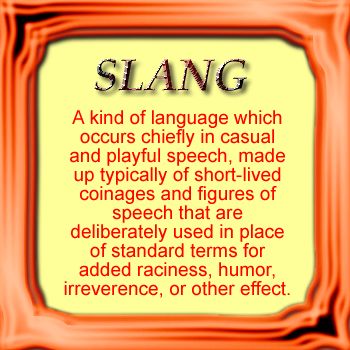Vocabulary
Australian slang
Since Paco arrived in Sydney he has noticed English is a bit different. He finds it more difficult to understand everything. One of the reasons why this is so is that there are a lot of slang words which are only used in Australia. Let's have a look at the following examples:
 |
| Elaboración propia. |
Battler: someone who works hard but only makes living.
Joey: a kangaroo which is still a baby.
Captain Cook: noun which Australians use to replace "look" in the English expression "Let's have a look": "Let's have a Captain Cook".
Cubby house: small, usually timber, house in the garden where children usually play.
Long paddock: the side of the road where livestock is grazed during droughts.
Surfies: people who go surfing - usually more often than they go to work!
Roadie: a beer that you buy to take away with you.
Damper: bread whose ingredients are flour and water.
Australian English began diverging from British English shortly after the foundation of the Australian penal colony of New South Wales in 1788. British convicts who had been sent there, including Cockneys from London, came mostly from large English cities. They were joined by free settlers, military personnel and administrators, often with their families. However, a large part of the convict body were Irish, with at least 25% directly from Ireland, and others indirectly via Britain. There were other populations of convicts from non-English speaking areas of Britain, such as the Welsh and Scots. English was not spoken, or was poorly spoken, by a large part of the convict population and the dominant English input was that of Cockney from South-East England.
In 1827 Peter Cunningham, in his book Two Years in New South Wales, reported that native-born white Australians of the time—known as "currency lads and lasses"—spoke with a distinctive accent and vocabulary, with a strong Cockney influence. The transportation of convicts to Australia ended in 1868, but immigration of free settlers from Britain, Ireland and elsewhere continued.
The first of the Australian gold rushes, in the 1850s, began a much larger wave of immigration which would significantly influence the language. During the 1850s, when the UK was under economic hardship, about two per cent of its population emigrated to the Colony of New South Wales and the Colony of Victoria.
Among the changes wrought by the gold rushes was "Americanisation" of the language—the introduction of words, spellings, terms, and usages from North American English. The words imported included some later considered to be typically Australian, such as dirt and digger. Bonzer, which was once a common Australian slang word meaning "great", "superb" or "beautiful", is thought to have been a corruption of the American mining term bonanza, which means a rich vein of gold or silver and is itself a loanword from Spanish. The influx of American military personnel in World War II brought further American influence; though most words were short-lived; and only okay, you guys, and gee have persisted.1
 |
| By Jason7825. GNU Free Documentation License |
When they entered the Concert Hall, Paco was astonished not only because of the great view of the room but also because he couldn't believe Australia had been a penal colony where convicts from the United Kingdom had been sent from 1788 to 1868.
Adapted from Wikipedia.org